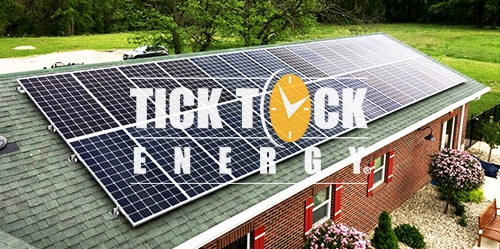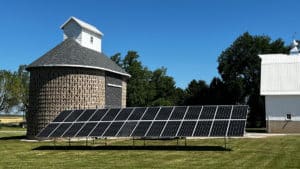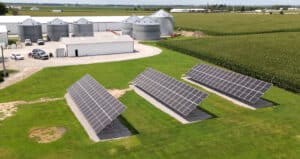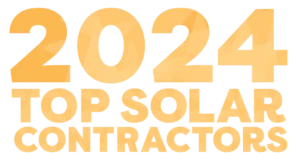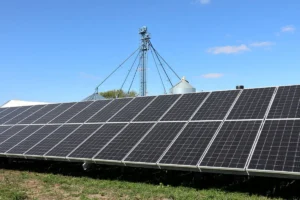Still Stinging from the 2020 Tax Bite? Plan Now to Lower Your 2021 Taxes by Considering the Federal Solar Tax Credit & Accelerated Depreciation
Are you recovering from the shock of paying a high 2020 tax bill? Tired of writing large checks to the IRS? Plan now to prevent a repeat of this for 2021 by investing in solar this year! One of the best tax incentives offered by the federal government offers is the Investment Tax Credit (ITC). The ITC or “energy tax credit” is available for solar, wind, and other energy-efficient upgrades and can help homeowners and businesses lower large tax liabilities.
In 2020, the tax credit was 26% of the eligible cost of the solar or energy property investment. This will remain at 26% for 2021 and 2022 and is scheduled to drop to 22% in 2023. This is a very popular tax incentive that has stimulated a large demand for solar power installations.
The ITC Is a Tax Credit and Not a Tax Rebate or Grant
A critical distinction of the ITC is that it is a tax credit and is determined by completing your 1040 tax return form. The ITC is not a rebate or grant and not a check paid by the federal government. We sometimes hear from customers that other solar companies have promised a check back from the government which may be incorrect. In simple terms, the solar tax credit is a dollar-for-dollar reduction in tax liability. It can take some time to fully capture the monetary value of the tax credit. For example, applying for the ITC for residential solar projects requires completing Form 5695 and including with your overall tax return. The IRS provides full instructions for completing Form 5695 for the 2020 tax year on this page of the Internal Revenue Service website.
Capturing the Financial Benefits of the Solar Tax Credit
Many people who install solar may wait until the end of year to start the conversation with their CPA or tax advisor. We encourage you to start planning right away and explore potential ways to monetize the tax credit value sooner than later. The common approach is waiting until tax preparation time, figuring out the tax liability and solar credit, then settling on the tax benefit typically in springtime of the following tax year.
However, there may be ways to accelerate the benefit right away, effectively giving yourself a pay raise. We have heard of customers adjusting their withholding amount and boosting their take home pay during the remainder of the tax year. Rather than pre-paying tax liability, one can let the tax liability rise equal to the amount of estimated solar tax credit. You may want to change withholding again once the tax credit equals to the tax liability to prevent a large end-of-year tax bill the following tax year. This may or may not be your best strategy but it is one idea to explore with your CPA or qualified tax advisor.
Farms & Businesses: Section 179 and Accelerated Depreciation
Farms and Businesses can take advantage of accelerated depreciation which can further reduce tax exposure for those entities. The IRS considers solar as 5-year property. By default, businesses and farms can gain extra depreciation value by using the modified accelerated cost recovery system (MACRS) accounting method. There is potential to write-off or depreciate the entire investment in one-year using Section 179 of the IRS tax code. For homeowners who operate a farm or home-based business, it may be possible to partially depreciate a solar investment based on the business use of the solar investment. It’s very important to work with a qualified tax professional or CPA that understands the details and options. Planning is important.
Additional References:
These pages on our website explore residential tax incentives and commercial tax incentives further. We’ve also covered this topic in other blog posts and this link might serve as useful resource as well
Conclusion:
Now is an outstanding time to go solar. Many years of declining solar equipment prices and strong federal tax incentives have made solar more affordable than ever. Flexible solar financing programs make purchasing solar easy for homeowners, farms, and businesses alike. With sound planning, an investment in solar might potentially be done with very little to nearly no money down while lower electricity bills and incentives can boost monthly cash flow. Tick Tock Energy provides comprehensive energy and financial forecasts in our proposals. We know the local Illinois, Missouri and Indiana markets including myriad of utility interconnection policies that exist in the area. Contact Tick Tock Energy to start the process. Then include your tax advisor early in the process to maximize the federal tax credit incentives.
* NOTE: Tick Tock Energy are not tax professionals and we always encourage you to consult your CPA or qualified tax advisor to fully explore how solar tax incentives can apply in your situation. Tick Tock can quote your solar project and help estimate tax incentives but verifying their applicability and benefit is up to you and your tax professional. We’re happy to assist along the way!
